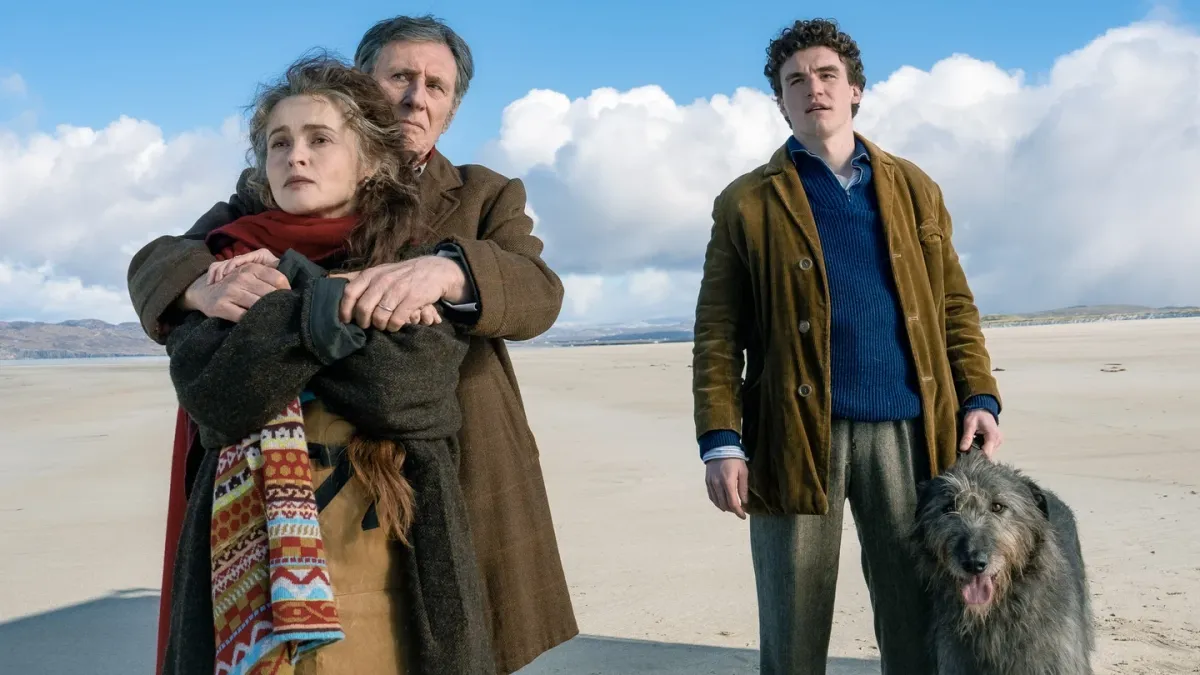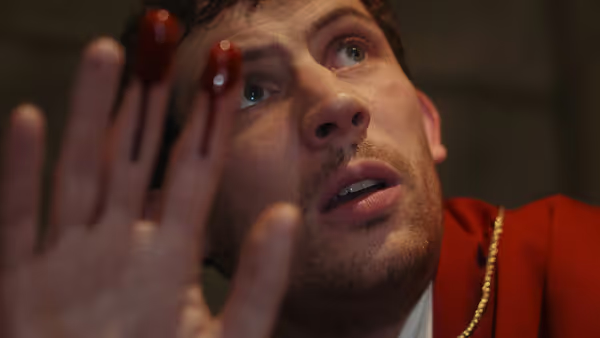Four Letters of Love: Hear Me Out
All Ireland knows is grief, drink, and poetry.

All Ireland knows is grief, drink, and poetry.
That would be my tagline for Four Letters of Love, a wistful, painterly adaptation of Niall Williams’s 1997 novel. It captures not just the physical beauty of Ireland, but the more intangible qualities too; the longing, the melancholy, the quiet religious awe, and the way love is always spoken of as a thing that breaks you, then saves you, and then breaks you again.
Directed by Polly Steele and written by Williams himself, the film does exactly what you might expect from its title. It is lyrical, slightly twee, and unfashionably earnest. But it is also, to its credit, unashamed to be Irish. This is not in the commercialised, tourist-board sense, but in that slow, sad, spiritual way that feels like home if you grew up under a grey sky with a heart full of unspeakable things. (and if you don't believe me, just hear me out for a minute)
The film winds its way through 1970s Ireland with a sort of Yeatsian reverence. In fact, the ghost of W.B. Yeats is practically a third lead. Voiceovers deliver poetic musings, characters are haunted by spiritual visions and abstract epiphanies, and everything is soaked in a mood of gentle, mournful mysticism.
And if that sounds like a bit much… yes, it often is.
But that doesn’t mean it’s not worthwhile.
A Romanticised Ireland
Much of the early commentary around Four Letters of Love has focused on its romanticised depiction of Ireland. The glowing peat fires, misty coastlines, stone cottages, and ethereal women dancing on cliffs as their brothers play a tune on the feadóg. And yes, the film absolutely leans into this aesthetic. But unlike the externally imposed whimsy of Wild Mountain Thyme or P.S. I Love You, there’s something inward-looking here. The Ireland portrayed is not the only a "cute" version made for mostly Americans. It holds the internal mythology, the stories we half-believe about ourselves. We paint it ourselves, we have done, we will do, and we’ll complain when someone else tries to. (Not me defending when they do, don’t throw me off the island yet, I mean only when they make misjudgements because of what we hand them)
Because here’s the thing: the Irish aren’t just the victims of stereotypes; we often play into them ourselves, willingly. We mourn dramatically, we write poetry about rain, we half-believe in fate, find pride in a lonely pint, and we find absurd comfort in tragedy. Four Letters of Love understands that. It doesn’t flatten Irishness into green hats and leprechauns, but it taps into something more honest: the particular way sadness sits in the Irish soul, not as an inconvenience, but as a birthright.
Yes, there’s a touch of magical realism. But it’s the kind born of necessity, not whimsy. Nicholas’s father quits his job after receiving what he believes is a divine message. Isabel’s life is fractured by a tragedy no one can explain. God is here, yes, but He’s not answering any questions. God is, as the Irish know, unforgiving. This is spiritual Ireland, but a God-haunted one. There’s no peace in this magic, only yearning and frustration. And that feels exactly right. Anyone who has set foot on this land has heard of Maureen down the road saving her son when enlightened in church, or unexplainable whispers by the sea that helped Killian learn his love for beat poetry or whatever. C’mon lads, this story is being told because it has been told before.
Let’s get this out of the way: Four Letters of Love is cheesy. It’s sentimental. It can be cloying. There’s enough voiceover narration to make Scorsese roll his eyes. But to criticise it for that is to miss the point. This is a romance. And an Irish one at that. The only kind of love story we know how to write is the miserable kind. If someone doesn’t die, get cursed, drown, or vanish mysteriously, was it even love? And if there's no sorrowful tone telling you the story, did it even happen at all?
There’s a temptation to say Four Letters of Love plays into Irish stereotypes. But that’s only half true.
Yes, there are misty cliffs. Yes, there are soulful boys who read poetry and girls who speak to God. Yes, there’s talk of destiny and second sight and spiritual callings. But again, this isn’t a film written by someone imagining Ireland from the outside. This is Niall Williams adapting his own work. Irish funded. Irish made.
The difference is subtle but crucial. The film romanticises Ireland, yes, but not externally. It is Irish romanticism, not romantic Ireland. There is darkness here: grief, loss, isolation, emotional repression. There is dysfunction and pain. And these are not just plot devices but elements of national identity. The film doesn’t ignore Ireland’s hardship. It instead weaves it into poetry. That’s what gives it its texture.
There’s a particular kind of magical realism unique to Irish storytelling. It is not the exuberant colour of Latin America, but something quieter, sadder. It’s a world where miracles are met with exhaustion, and divine messages lead to unemployment. Four Letters of Love captures that successfully.
The Language Gap: A Disappointing (and Familiar) Omission
And now, let’s talk about the Irish language. Or more accurately, the conspicuous lack of it.
Early in the film, we learn that Isabel and her family live on an island off the west of Ireland. Her parents are poets and native Gaeilgeoirí (Irish speakers). Isabel and her brother are speaking Irish from the get-go.
And then… nothing.
In every other scene involving only the family, English dominates. Most notably, every scene with Helena Bonham Carter, playing Isabel’s mother, is entirely in English. This is more than a missed opportunity. It’s a contradiction. It flies in the face of the very world the film is trying to portray. The character is noted to have Irish, but unexplainedly doesn't speak it with her Irish-speaking family.
Why does this matter? Because Irish-language representation in cinema is rare. Because Helena Bonham Carter, talented though she may be, is not Irish, and her casting comes with baggage. Centuries of linguistic suppression aren’t easily ignored. Having an English actor play an Irish Gaeilgeoir, only to have that character default to English, feels like a slap in the face. It is a kind of internalised censorship.
This isn’t about gatekeeping. It’s about respect and realism. If you’re going to show a family of Irish speakers, let them speak Irish. This was a chance to integrate the language naturally into the film’s fabric. A chance to let the language live. And the film flinched. Whether that was a creative decision or a casting compromise (I believe the latter), it hurts the film’s integrity.
Final Verdict: Not Exceptional, But Nice
Four Letters of Love is a film easy to mock, but harder to dismiss. Yes, it is slow. Yes, it is sentimental. Yes, it leans into its own poetry too often. But it is love, and God help me, I love love. It also feels, in a way that’s increasingly rare in mainstream cinema, spiritually sincere.
It’s not exceptional. But hey, it doesn’t have to be. It’s a love letter to a kind of storytelling that my nation’s known for.
It’s a little too long. A little too soft. But it stays with you.
Because yes, it’s romantic. And yes, it’s cheesy. And yes, everybody in it is doomed until they aren't. But as any Irish writer will tell you, the only romance worth writing is the one that holds an ache. Or prophecy. Or a letter you’ll never send. (or that your lover’s mother will never send, but that's neither here nor there)



